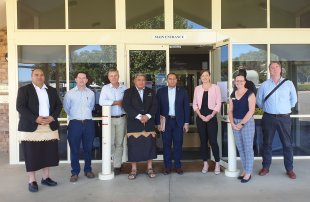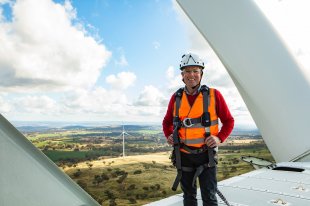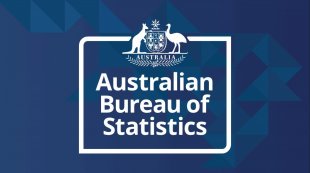-
Featured Items
-
Featured Resources
 Funding & Grants
Don't miss out on funding opportunities. Stay informed with our up to date online listings and email notifications.
Read More
Funding & Grants
Don't miss out on funding opportunities. Stay informed with our up to date online listings and email notifications.
Read More
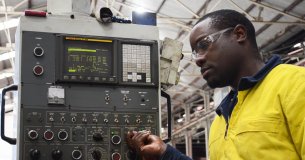 Skilled Migration
Our services help both applicants and employers, to learn more, develop plans, submit applications, and settle in.
Read More
Skilled Migration
Our services help both applicants and employers, to learn more, develop plans, submit applications, and settle in.
Read More
 Research and Analysis
Good research and analysis makes the case. How can our resources and services help your project or application?
Read More
Research and Analysis
Good research and analysis makes the case. How can our resources and services help your project or application?
Read More
 Information & Data Resources
With resources like REMPLAN, Regional Knowledge Base, and decades of data, discover how we can help your project.
Read More
Information & Data Resources
With resources like REMPLAN, Regional Knowledge Base, and decades of data, discover how we can help your project.
Read More
-
Stay InformedSubscribe to one or more of our regular email subscriptions, to be kept up to date on news and funding opportunities for the region
-
-
Our Region
- Our Region
- Regional Plan
- Regional Data
- Current Regional Issues
- Population Migration Analysis for 2016-21
- Job Vacancies Continue at All-Time High
- National Debt - What it Means for Our Economy?
- The True Value of Home Solar
- The Economic Impacts of Local Government Amalgamations
- State of the Regions Report 2014-15
- Antifragility - A different take on regional economic development
- Biohubs - Collaborative Waste Management
- Attracting New Residents
- Socio-Economic Impacts of the Murray Darling Basin Plan
- Murray Darling Basin Water Recovery
- Growing Businesses
- The Northern Inland Economy
- Geographical Overview
- Major Industry Sections
- Our Services
- Grants and Funding
-
Skilled Migration
- Skilled Migration
- Skilled Employer Sponsored Regional Visa
- Skilled Work Regional Visa (subclass 491)
- Temporary Seasonal Workers
- Designated Area Migration Agreement (DAMA)
- Helpful Information for Visa Holders
- Information for Employers
- Case Studies
- Payment Details
- Advice & Further Information
- Contact Details
- News & Events
-
Our Projects
- Our Projects
- Current Projects
- Skilled Migration
- Wool Works - Wool Training Schools
- Metal Works - Welding and Fabrication Schools
- Come On Inland
- Stories of Resilience
- Alt Brothers Beekeeping - Glen Innes
- Carelle's Toy Store - Glen Innes
- Greenhill Orchards - Arding
- Gwydir Meats - Warialda
- Kaputar Motors - Narrabri
- Moonbi General Store - Moonbi
- Sandstock - Tingha
- Sherelle Fashions - Tenterfield
- Sleepy Merino - Inverell
- Tenterfield Chamber of Toursim, Industry and Business - Tenterfeild
- The Welders Dog - Armidale
- Walcha Veterinary Supplies - Walcha
- AGCAP - Agribusiness Careers & Professions
- Northern Inland Regional Investment Profile
- Past Projects
- Digital Economy Strategy
- Business Growth Project
- Go Digital
- How to Start an Online Business
- Create Your Website Using Squarespace
- How to Edit Your Squarespace Site - Part 1
- How to Edit Your Squarespace Site Part 2
- Add a Shop to Your Squarespace Site
- Start a Blog and Find out What Customers are Searching
- 14 Tips For a Better Blog Post
- Which Social Media Platforms are Best for Your Business
- How to Use Facebook Effectively For Your Business – Part 1
- How to Use Facebook Effectively For Your Business – Part 2
- Instagram Tips for Business
- Catching Up, More Instagram & Dealing with Haters
- Getting Started with Twitter for Business
- Social Media Scheduling Tools
- How to Start an Etsy Shop – Part 1 – Research
- How to Start an Etsy Shop – Part 2 – Signup
- Online Security for Your Business
- Product Photography and Website Images: Your Guide
- 5 Tips to Improve your Productivity in your Business
- Best Online Business Resources
- How to Improve Your Communication Skills and Win More Clients
- NBN Coordinator
- Putting Power Back in the Regions
- Road Freight Study
- Town Audit Benchmarks
- Food and Wine
- Youth Survey
- Digital TV Switchover Assistance
- Northern Inland Transport Guide
- Live.Train.Work
- Northern Inland Innovation Awards
- Northern Inland Innovation Awards - 2017
- Northern Inland Innovation Awards - 2016
- Northern Inland Innovation Awards - 2015
- Northern Inland Innovation Awards - 2014
- Northern Inland Innovation Awards - 2013
- Northern Inland Innovation Awards - 2012
- Norther Inland Innovation Awards - 2011
- Prime Super Northern Inland Innovation Awards - 2010
- Prime Super Northern Inland Innovation Awards - 2009
- Northern Inland Innovation Awards - 2007
- Northern Lights Project
- NBN Smart Home
- Murray Darling Basin
- Moree Plains Business Workshops
- Namoi Investment Prospectus
- Industrial Land
- Bioenergy and Local Electricity Retailing
- Northern Inland Business Energy Assessment
- Skills for the Future
- Impacts of COVID-19 on Businesses
- Past Projects of NIRDB
- Aboriginal Employment and Enterprise in the Gunnedah Region
- Art as an Industry
- Aviation Survey
- Farm Forestry - Northern Inland Forestry Investment Group
- New England North West Film Strategy
- Northern Inland Excellence in Business Awards
- Food and Wine 2003 - 2008
- Prime Super Northern Inland Innovation Awards 2009
- Regional Business Networking Program
- Regional Leadership Course 2008
- Viticulture Strategy 2002-2003
- About Us
- Contact Us
- Other Resources
- Privacy and Legal
- Search
Back to Newsletters
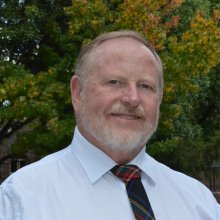
April 2021 Newsletter
Friday 30th of April 2021
In this Issue
- Welcome from the Chair
- International Opportunities for Gunnedah
- Community to be Involved in REZ Development
- Could You Help Tell Our Region’s Story in The Census?
- Support for Ladies in Livestock
- An Industry with Legs
- Featured Grants and Funding Opportunities
Welcome from the Chair

Dear Northern Inlanders,
Keeping up with change and making the most of unique opportunities is key to the future growth of our region. Capitalising on innovative ideas and new methods will help our businesses and communities to recover from the tough times we have had and prosper in the future.
Our communities are innovative in finding solutions to problems, such as the connections that Gunnedah Shire Council are making with Tonga, and with skilled migrants to fill the labour shortages that businesses in the shire are being hindered by.
Our region is also leading the way in renewable energy with development of the New England Renewable Energy Zone. This Renewable Energy Zone is one of only three in New South Wales and will provide a multitude of benefits to the region. Once established, it is expected to create over 1,000 ongoing jobs and increased investment in public infrastructure such as roads, telecommunications, and health services.
Innovation and change also provide opportunities for businesses to diversity and new industries to be established. The roadmap for the development of the edible insect industry in Australia by the CSIRO provides some interesting food for thought for those looking for a unique business prospect with global potential.
Regards,
International Opportunities for Gunnedah
Gunnedah Shire Council welcomed representatives from the High Commission of Tonga this month who met with local businesses to discuss employment opportunities.
Income from citizens working offshore is a significant contributor to Tonga’s economy, which has a 50% unemployment rate in key cohorts. As Gunnedah currently has a large number of job vacancies, talks between representatives of the two communities have uncovered opportunities that they can realise together.
Mayor of Gunnedah Shire Cr Jamie Chaffey said there is a strong alignment of needs between Gunnedah and Tonga, with the visit marking the beginning of a valuable friendship. “There are significant employment opportunities here in Gunnedah, both in agriculture and far beyond, and Tonga is interested,” Cr Chaffey said. “Our population has not kept pace with Gunnedah’s employment growth. Employers have told us that people are not available locally to fill the demand for skilled and unskilled positions. Council’s Skills and Training Working Group are focussed on securing immediate and long-term solutions to these local workforce shortages. As part of this initiative, we are extending a hand of friendship across the Pacific to offer Tongan workers an opportunity to gain experience with our local industry leading businesses and help support their families and communities.”
Our Skilled Migration Officer, Gary Fry, also joined the two-day tour of Gunnedah businesses to share his knowledge of the various skilled migration schemes that are available for businesses that are experiencing worker shortages. “We support the region’s development by facilitating an important option for employers struggling to attract the skilled workers they need. Through our Skilled Regional State Nomination program, we are bringing skilled migrants to our region. While this is not the complete solution to our labour challenges, it is essential for our region’s growth.” he said. “Skilled migration is not about taking jobs from locals. They are migrants with skills that RDANI has identified as being in demand and in shortage in our region, such as hospitality and metal trades or Registered Nurses. Hundreds of 489 recipients and 491 applicants are in our region, many with skilled partners that represent a quality labour market pool.”
Employers that are currently seeking skilled workers are encouraged to utilise our free Skilled Migrations Jobs Board Northern Inland Facebook Group. With over 1,000 members, this group provides a free way for employers to connect with skilled migrants in our region. Employers can also find out more about employing 491 and 489 visa holders on our website or contact Gary on 02 6771 0700.
Community to be Involved in REZ Development
Our region is leading the way in renewables with the development of the New England Renewable Energy Zone, one of only three in New South Wales. A Renewable Energy Zone (REZ) involves the development of new power grid infrastructure to connect multiple energy generators in the same zone. They are effectively the modern-day equivalent of a power station, and combine the generation, transmission, storage and system strength services.
The New England REZ is a key component of the NSW Government’s Energy Infrastructure Roadmap – a co-ordinated plan to deliver the cheap, reliable and modern grid that will power our State into the future and do it in a way that creates jobs, drives investment and supports our regions.
The views of locals will be front and centre in the development of the New England REZ with a new REZ Regional Reference Group launched this week. Member for Northern Tablelands, Adam Marshall said the forum would be the key channel to ensure the REZ delivered meaningful long-term benefits for the community and guaranteed renewable energy projects were developed with public support, in the right locations in the region.
“We are bringing representatives from our region’s local councils, Aboriginal Land Councils and the relevant State Government agencies to the table as part of the Regional Reference Group,” Mr Marshall said. “With a predicted $12.7 billion direct investment in our region over the next decade and more than 1,000 new ongoing jobs, this REZ has the potential to underwrite our community’s prosperity for generations to come. I want to make sure we secure every possible economic and employment benefit for our community in a way that supports existing land uses and local landholders. We warmly welcome renewables in our region, but it must not come at the cost of any of our existing industries or amenity.”
The first meeting of the group took place this week and a call for registrations of interest in the New England REZ will be made soon. Further information about the New England REZ and the new Regional Reference Group is available on the NSW Energy website.
Could You Help Tell Our Region’s Story in The Census?
Australia’s 18th Census will be held this year on the 10th of August. The census, which is conducted every five years, and is the most comprehensive snapshot of our economic, social and cultural makeup. This information is then used by government, business and community groups for a range of decision making, including the provision of infrastructure and services such as health, roads, and schools.
To conduct the census, the Australian Bureau of Statistics (ABS) will hire 38,000 temporary positions. The ABS is currently recruiting 20,000 Census Field Officers across the country, including Field Officer roles in the Northern Inland.
Field Officers are a crucial workforce that will help people throughout Australia to participate in the Census. They assist the ABS at a local level by delivering Census instructions and forms and by visiting households that have not yet responded.
“Field Officers play a vital role as they promote Census participation and answer peoples’ questions. Helping members of the public who need special support to complete the Census is a key role for our Field Officers.” said Andrew Henderson, Census Executive Director and National Spokesperson. “We want to recruit motivated people who are keen to tell their community’s story through the successful collection of Census data. Previous experience isn't a requirement and training will be provided prior to commencing the job.”
They are seeking people that know their local area and are also looking for people who can speak a language other than English as part of the job. The flexible working hours are variable and will include weekdays, weekends and evenings. Jobs are expected to fill quickly, so interested applicants are encouraged to view the applicant kit and apply early through the Census Jobs Portal.
Support for Ladies in Livestock
The Ladies in Livestock program delivers hands-on practical skills to women as independent land stewards with a keen interest in agriculture, to work and make decisions on properties. The program is run by Northern Tablelands Local Land Services and is funded through the Australian Government’s National Landcare Program. The group meetings provide a supportive learning environment, where members can ask questions that they may not be inclined to during mixed field days or workshops.
The popular Ladies in Livestock groups have been established in Guyra, Inverell, Tenterfield, and Walcha, and are attended by a diverse range of women with various experiences to share. All women are invited to participate, and meeting times are decided by each group, with allowances being made for school run times and school holidays.
The group meetings cover a range of topics that are tailored to the majority interest and relevant production and include, but not limited to:
- animal health and management
- marketing options
- financial planning
- paddock preparation
- pasture selection and identification
- weed identification and biosecurity management.
Further information is available in the Ladies in Livestock video and anyone interested in joining a group can contact Northern Tablelands Local Land Services on 1300 795 299.
An Industry with Legs
The edible insect industry provides food for thought for businesses, as global demand is growing quickly. With our long tradition of agricultural innovation and diversity of insects, Australia is well placed to participate in this new industry.
To investigate the potential of this industry, the CSIRO has developed a roadmap for the development of the edible insect industry in Australia. Edible insects: A roadmap for the strategic growth of an emerging Australian industry, lays out a comprehensive plan for the emerging industry, exploring the challenges, opportunities, cultural values, sustainability, and health outcomes of the industry.
Co-funded by CSIRO and the Australian Department of Foreign Affairs and Trade (DFAT) through the Council on Australia Latin America Relations (COALAR), the roadmap provides a framework within Australia for First Nations initiatives, start-ups, insect businesses, researchers, policy makers, and community members interested in engaging with the industry.
"The worldwide edible insect market is expected to reach $1.4 billion in value by 2023. Europe and the United States of America lead the western world market, with more than 400 edible-insect-related businesses in operation," CSIRO researcher and report co-author, Dr Rocio Ponce Reyes said. "Insects have high-value nutritional profiles, and are rich in protein, omega-3 fatty acids, iron, zinc, folic acid and vitamins B12, C and E. They are also complementary to our existing diets because they are a healthy, environmentally friendly, and a rich source of alternative proteins," she said.
More than 2,100 insect species are currently eaten by two billion people from 130 countries, including 60 native insect species traditionally consumed by First Nations Peoples in Australia. Iconic Australian species include witjuti (also known as witchetty) grubs, bogong moths, honey pot ants and green tree ants.
"The roadmap draws on the expertise of Australian and international scientists, Aboriginal and Torres Strait Islander peoples, insect farmers, food processing industry leaders and chefs, to set out the challenges and opportunities presented by one of the world's richest sources of protein and other micronutrients," said CSIRO entomologist and report co-author, Dr Bryan Lessard. "Australia has a high diversity of native insects. Working with First Nations enterprises, many species have the potential to be sustainably harvested or grown in low impact farms, to be turned into new and delicious Australian foods for us and our pets. Commercial insect farming is considered to have a low environmental footprint, requiring minimal feed, water, energy, and land resources – factors of importance to the modern health and ethically-conscious consumer."
Featured Grants and Funding Opportunities
Below are some featured grants and funding opportunities from the multitude of open grants listed in our Grants and Funding Opportunities Database on our website. Our website is updated weekly with new listings and updates and all are applicable to our region, so it is a great resource if you are looking for funding for a specific project.
You can also sign up to our free Business and Infrastructure Funding Opportunities and the Community Grants and Award Programs newsletters through the simple form located in the footer of our website, www.rdani.org.au, to receive monthly summaries of current grants.
Powering Communities Program
Closes: 11th of June 2021 for Parkes Electorate, 28 May for New England Electorate
Value: $5,000 to $12,000
Run By: Australian Government Department of Industry, Science, Energy and Resources
The Powering Communities Program will provide grants to help not-for-profit community organisations reduce energy use, improve energy productivity and reduce greenhouse gas emissions.
The program aims to save energy and reduce power bills through:
- upgrading equipment to reduce energy consumption
- undertaking energy management activities and assessments, such as energy systems assessments and feasibility studies
- investing in energy monitoring and management systems
- investing in on-site renewable energy and solar-connected batteries.
12 grants are available for each federal electorate, and applications must be invited by the applicable federal member through an expression of interest process.
EOI's for the New England Electorate need to be submitted to Barnaby Joyce by the 28th of May.
EOIs for the Parkes Electorate need to be submitted to Mark Coulton by the 11th of June.
Community Building Partnership
Closes: 14th of May 2021 - 5:00 pm
Value: $5,000 to $150,000
Run By: NSW Government Department of Premier and Cabinet
This program funds infrastructure projects that deliver positive social, environmental, and recreational outcomes while promoting community participation, inclusion and cohesion.
In 2021, there is a maximum of $300,000 to allocate in each electorate. Incorporated not-for-profit community organisations and local councils are eligible to apply for grants of between $5000 and $150,000. The average grant awarded is around $20,000.
Projects with contributions from their own, or other sources, will be considered favourably. Local councils, including their section 355 committees, are required to provide matched funding to the CBP grants.
As total funding will be divided equally among the state electorates of NSW, applications will be assessed against other proposed projects within the same electorate.
Small Business Fees and Charges Rebate
Closes: 30th of June 2022
Value: Up to $1,500
Run By: NSW Government
If you are a sole trader, the owner of a small business or a not-for-profit organisation in NSW, you may be eligible for a small business fees and charges rebate of $1500.
The Small Business Fees and Charges Rebate is open to small businesses which have a total wages bill below the new 2020-21 $1.2 million payroll tax threshold and have a turnover of at least $75,000 per year.
It is available from 1 April 2021 until 30 June 2022, for eligible fees and charges due and paid from 1 March 2021.
Fees and charges that can be claimed back through the scheme include liquor licences, food authority licences, council rates and outdoor seating fees.
Local Roads and Community Infrastructure Program
Closes: 31st of July 2021
Value: $14,596 to $40.7699 Million
Run By: Australian Government Department of Infrastructure, Transport, Regional Development and Communications
This program provides funding to Local Councils for local road and community infrastructure projects. The scope of LRCI Program Phase 2 supports a broad range of eligible projects so communities can fund the infrastructure that they need, support businesses and create employment opportunities across their communities.
The LRCI Program Phase 2 aims to continue to assist a community-led recovery from COVID-19 by supporting local jobs, firms, and procurement. It expected that councils will use local businesses and workforces to deliver projects under the LRCI Program where possible to ensure stimulus funding flows into local communities.
Local Councils who have in place an executed Grant Agreement in relation to their ‘Nominal Funding Allocation’ under Phase 1 of the LRCI Program are eligible for Phase 2.
Related Pages







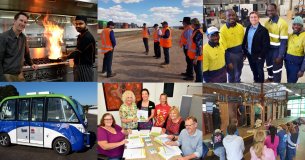 Latest News
Latest News
